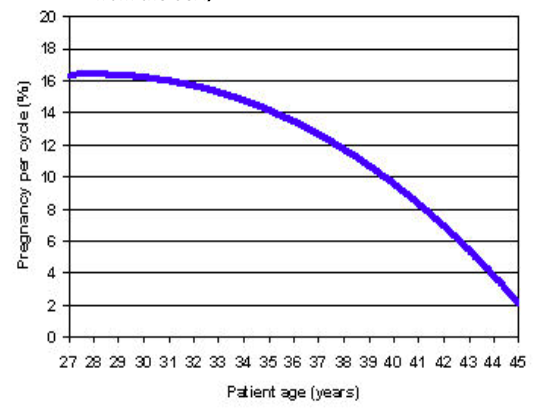Once you have been seen by the doctor and have been booked for IUI treatment you can start your OI at any point in the following 12 months. An IUI treatment always starts with a period. You will need to call the fertility unit (622 8869 or 662 8344) on the day your period starts and will need to come in the following day for a scan. When you call us, we will let you know which clinics are open for scans. If your period starts on a Sunday please call and leave a message (662 8344 or 622 8869) telling us that your period started and that you are coming in for a scan on Monday. All scans are done between 7.00 and 8.00 am Monday - Friday (both clinics) and 8 - 9am on Saturdays (Medical Associates clinic only), on a first-come first-served basis. If you arrive after this time then there may not be staff available to perform your scan and you will need to come back the next day.
 EGG GROWING & MONITORING
EGG GROWING & MONITORING
SCAN #1 Attend the clinic on day two (or three) of your period for a vaginal scan and oestradiol blood test. If your scan is normal, either fertility tablets (such as Clomiphene or Letrozole) or the stronger FSH injections will be given to you to ensure you grow one or more eggs. You will be called in the afternoon with the result of your blood test and advised when to start your medication.
SCAN #2 Attend the clinic around day 9-12 of your cycle (or day 6 to 7 if you’re using the FSH injections) for a vaginal scan and Oestradiol blood test to see how your eggs are growing. Day 1 of your period = day 1 of your cycle. Depending on these results you will either be ready for your treatment (and sometimes may require an injection to release your egg(s)) or more often you will require some more time to grow your egg(s). Often another one or two blood tests and repeat scans are needed along with some home urine testing.
 SPERM PRODUCTION
SPERM PRODUCTION
Sperm will be needed the day of your IUI procedure. Some people will have a frozen sperm sample stored and ready for their IUI.
Most couples will be producing a fresh sperm sample on the day of their IUI. During the monitoring phase of scans when the eggs are growing (Step 1 above) you will be warned when you are getting near to the time for the IUI and near to the time you will need to produce the sperm sample will be needed. It is ideal if you have abstained from sexual intercourse or ejaculation for 2-5 days before you are producing your sperm sample for the IUI. When your sperm sample is needed you will be asked to produce it by masturbation in the clinic. If you have had low samples in the past we may ask you to try and produce more than one sample for us (called a MERC) the morning of your IUI treatment.
 IUI PROCEDURE
IUI PROCEDURE
The sperm sample is washed and treated in the lab for between 30-90 minutes to concentrate the healthy sperm and increase the sperm’s energy and movement. When ready, the sperm sample is loaded into a thin plastic tube (catheter) for the IUI treatment. The IUI is a simple procedure done in the fertility office & takes around 20-30 minutes. You can go to work or have a normal day afterwards.
An IUI feels similar to having a cervical pap smear performed. An instrument (speculum) is placed in the vagina. The cervix (neck of the womb) is located and cleaned. The sperm is placed inside the womb by passing the thin plastic tube (catheter) through the cervix and gently up inside the womb. Occasionally a clip is placed on the cervix to help the catheter enter the uterus. There is usually mild to no pain with an IUI. Some people may feel cramps in the uterus - like mild period pain, either during the IUI or during the days afterwards.



